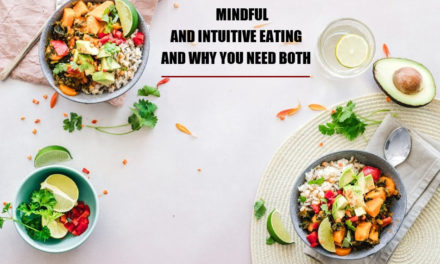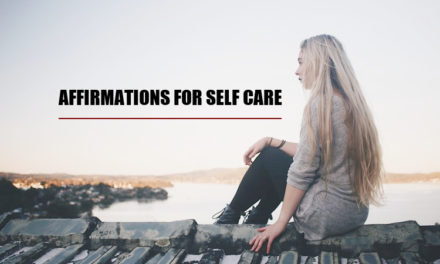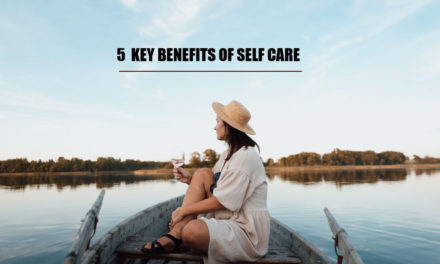In this post: Life can get hectic and it’s easy to feel like you have too much on your plate. That’s why carving out and practicing attitudes of mindfulness is so important.
“When we get too caught up in the busyness of the world, we lose connection with one another – and ourselves.”
Jack Kornfield
It’s easy to feel overwhelmed when life has you under siege. But, when you apply the attitudes of mindfulness it helps to shift the focus away from all that’s going on in your busy life and centers you back into moments of peace, serenity and the present.
With a few simple, mindful attitudes you can help to cultivate an inner oasis even in the most chaotic times.
In this post, we’ll dive into the importance of your attitude when it comes to cultivating mindfulness and how making small shifts in your mindset can lead to big rewards for your well-being and happiness.
Table of Contents
But What Is Mindfulness?
Mindfulness is the practice of purposely focusing your attention on the present moment.
It’s also about accepting what you’re experiencing at that moment, without any judgment. That means not labeling your thoughts and feelings as “good” or “bad” but just letting them be.
It’s a way of living your life that can help you become more aware of your thoughts and feelings, and less reactive to them, which can drain the life out of you.
This allows you to focus on what’s important in your life and make better decisions.
How Does Mindfulness Affect Your Well-being?

Research suggests that mindfulness techniques such as meditation, have the potential to increase your ability to regulate difficult emotions and improve your physical health.
By taking the time to be present with your thoughts and feelings, it’s possible to better access your inner resources and become more capable of making meaningful decisions.
It’s also reported that mindfulness can lead to improved stress management and mental clarity, allowing you to better cope with everyday life.
Here’s the thing, when you focus on the “now”, you’re usually able to let go of any past events or future worries and focus your energy on being mindful which can greatly reduce stress and anxiousness.
Incorporating attitudes of mindfulness into your daily activities can therefore provide benefits for both your physical and mental health.
Benefits of An Attitude of Mindfulness
Mindfulness is all about being in the present moment. This means that you focus on your current experience, rather than letting your mind wander.
It can be helpful when you find yourself constantly worrying about ongoing issues. Practicing mindfulness has been shown to have a number of benefits, some of which are:
- Reducing stress
- Improving focus
- Better physical health
- Decreased depression
- Improved memory
- Increased Regulation of emotions
- Stronger Relationships
Attitudes Of Mindfulness

The nine attitudes of mindfulness are:
1. Acceptance
One of the main attitudes of mindfulness is acceptance. This means that you accept things as they are, without trying to change them.
When you’re mindful, you don’t judge your thoughts or experiences instead, you simply observe them.
You and I both know that acceptance is not always easy. It means giving up control, and admitting that you can’t do everything on your own.
Sometimes it’s hard to let go of your need to be perfect and to accept that you’ll make mistakes.But when you do, you’ll find peace and happiness that you could never have found otherwise.
When you learn to trust in the universe and believe that everything will work out for the best, you become more compassionate, accepting, and more understanding of others.
It is so important to accept others for who they are. You should not judge them for their mistakes, but instead, help them learn from them. You should not hate them for their differences, but instead, embrace them.
Most importantly, you learn to accept yourself for who you are, flaws and all. And that is the most beautiful thing.
2. Non-judgement
When it comes to interacting with others, you might often find yourself making judgments. You might judge someone’s appearance, intelligence, or their actions.
This is natural, but it can also be harmful. Judging others can lead to resentment and division and can prevent you from forming meaningful relationships with others.
One of the best ways to overcome this tendency is to practice non-judgment. This means accepting people for who they are, without passing judgment on them.
That is to say seeing them as equals, regardless of their appearance or intelligence and viewing them as individuals, rather than stereotypes.
It might be difficult at first but it can be done. By accepting others for who they are you can build bridges and create relationships that are based on understanding and compassion.
Benefits of Non-Judgement

There are many benefits to practicing non-judgment. Here are a few:
1. Fosters Understanding and Compassion
When you accept people for who they are you can appreciate their uniqueness and learn about their life experiences. This understanding can lead to compassion and bonding, which is the foundation of meaningful relationships.
2. Sets An Example For Others
In practicing non-judgment, you set an example for others. You’ll show them that it’s possible to see beyond surface differences. You can also show them that respect and compassion are more important than judgment.
3. Leads to Inner Peace
When you let go of judgment, you open yourself up to inner peace. Judgment creates anxiety and stress, but non-judgement allows you to live in the present moment with ease and joy.
3. Trust
The definition of trust is a belief that someone or something is reliable, good, honest, effective, etc.
Even though the world is constantly changing sometimes in a way we don’t appreciate, it’s important to be able to trust.
Trusting could be as simple as trusting your friend not to spread rumors about you. Whatever it is, trust is essential in maintaining healthy relationships.
But what happens when trust is broken? This can be a difficult experience that can leave you feeling hurt and betrayed.
In some cases, it may be impossible to repair the relationship. However, if both parties are willing to work at it, rebuilding trust can be a rewarding experience.
So what can you do to build trust in your relationships? Here are a few tips:
1. Be honest and truthful
Honesty is key when it comes to building trust. If you’re not truthful, the other person will eventually find out and the relationship will be damaged.
2. Be consistent
If you say you’re going to do something, make sure you follow through with it. This shows that you’re reliable and trustworthy.
3. Be supportive
When the other person needs support, be there for them. This indicates that you care about them and that you’re willing to help them through tough times.
4. Be patient
Rebuilding trust takes time so don’t expect it to happen overnight. Give others space and don’t rush them into making decisions.
5. Be forgiving
Everyone makes mistakes so don’t hold grudges against others if they falter occasionally. Forgiveness is the key to restoring trust in any relationship.
Related: The importance of trust in a relationship
4. Non-striving
In Buddhism, the ultimate goal is to achieve enlightenment and end suffering. Trying to adopt this approach in your everyday life may seem like a daunting task, and in some ways it is.
But it’s also possible if you take it one step at a time. One of the most important steps is to learn to let go of striving and attachment.
What Is Striving?

Striving is the desire for something to be a certain way, and this can be a major obstacle on the path to enlightenment.
When you’re attached to your ideas about how things should be, you can’t accept things as they are.
This can lead to frustration and suffering because the world will never live up to your expectations.And so, one of the best ways to let go of striving is to develop an attitude of mindfulness.
Just be aware of what’s happening in the present moment without judgment. You simply observe things as they are, without trying to control them.
This allows us to accept reality, warts and all, and that can be very liberating.
Let Go Of Striving And Attachment
When you let go of striving and attachment, you can begin to live more peacefully and happily in the present moment.
There’s no need for you to constantly strive for something that is perfect; instead, you can simply enjoy what you have right now.
The truth is, it’s possible to live a good life without strivings. Many people in the world manage to do just that.
They find contentment in their simple lives and don’t feel the need to constantly push themselves into burnout and overwhelm.
Benefits Of Non-Striving

There are many benefits to living this way:
- You’re less likely to become burned out or overwhelmed.
- You can take things at your own pace and enjoy life more fully.
- It can lead to a more peaceful and relaxed state of mind.
- You will not be as worried about what others think of you or what you should be doing.
- You can learn to appreciate what you have instead of always longing for something more or what others have.
- There will be greater happiness and satisfaction in your life.
There are, of course, downsides to living a non-striving life. For one thing, you may not achieve as much as you would like to.
You may also find that your life feels somewhat aimless without any goals to strive for.
But if these are trade-offs you are willing to make for your happiness and peace of mind, then a non-striving life may be right for you.
5. Beginner’s Mind
When you’re first starting out in any activity, it’s important to have the right mindset. With a beginner’s mind, you’re open to learning and embracing new experiences.
You aren’t attached to your old ways or how things have been done in the past. This is a key ingredient for growth.
When you approach a new challenge or opportunity with a beginner’s mind, you are more likely to succeed because you’re not weighed down by preconceived notions or biases.
By doing so, you’re willing to take risks and explore new possibilities.
The Benefits of a Beginner’s Mind
The benefits of a beginners mind are not just limited to new endeavors though. Some other benefits are:
- It can also be helpful in your personal life and relationships.
- With a beginner’s mind, you can let go of grudges and resentments.
- You can be more forgiving and accepting of others.
To tap into the power of a beginner’s mind, it’s important to keep an open mind and be willing to learn. Be curious about the world around you and the people in it. And, don’t forget to embrace change and new experiences.
When you do, you will discover a whole new level of growth and happiness.
6. Patience

Patience is a virtue that is often preached about, but not so often practiced. Raise your hand if you’re guilty of that. We’re all guilty of wanting things now, instead of waiting for them.
But, patience is something that can be learned and it’s definitely worth putting in the time and effort.
There are many reasons why practicing patience can be beneficial.
1. For one, it can help you to avoid stress and anxiety.
2. You’re more likely to stay calm and relaxed during difficult situations.
3. It can be helpful both mentally and physically.
4. You’ll be less likely to experience negative side effects like headaches or high blood pressure.
4. Helps you to better focus on your goals. When you are able to focus on what you want and take the time to achieve it, rather than rushing through everything, you are more likely to be successful.
5. Lastly, patience can help you to develop stronger relationships. When you take the time to listen and understand the other person, instead of just trying to get your point across, they will appreciate this more. Relationships built on patience are more likely to last and be fulfilling.
7. Letting Go
Letting go is not always easy, but it’s an important step on the road to happiness and fulfillment in your journey through life.
To let go is the act of releasing or freeing someone or something. This can be done physically, emotionally, or mentally.
In order to let go of something, you must first identify and understand what it is that you’re holding on to. Then you can begin to let go of the things that are holding you back.
Often, you might hold on to things out of fear. It could be fear of the unknown, fear of failure or fear of being alone.
You may also hang on to things because they provide you with a sense of comfort or security.
But in order to grow and move forward in your life, you need to learn to let go. Make a plan and take action to let go.
How To Start Letting Go
It’s crucial that you release the hold you have on the past and open yourself up to new possibilities. Here are some tips for letting go:
- Acknowledge why you’re holding on.
- Identify the benefits of letting go.
- Make a plan for how you will let go.
- Take action and let go.
- Be patient with yourself and give yourself time to adjust.
- Seek support from others if needed.
- Celebrate your progress.
Related: Affirmations for letting go
8. Gratitude

A grateful attitude is an important part of self care and is essential for a healthy lifestyle.
Gratitude is being thankful for what you have, both big and small. Cultivating gratitude can improve your mental well-being by helping you to tolerate stress better and increasing your self-esteem.
It’s being appreciative of your life, your family, your friends, and all of the good things in your life. When you learn to focus on what you have, instead of what you lack, it encourages optimism and leads you to live a more meaningful life.
It is also being grateful for the bad things because they have made you who you are today. When you develop an attitude of gratitude it contributes greatly to living a happier, healthier life since it helps you to stay present and foster gratitude even in difficult times.
Related: Gratitude is a must
9. GenerosityTo Yourself And Others
Here’s the thing, mindfulness involves generosity. This means being kind, compassionate, and understanding towards yourself and others.
Kindness is doing something good for someone else, without even a second thought and with zero expectations from that person. When you’re kind, you treat yourself and others with respect and gentleness.
It’s all about being generous with your time, your money, and your love. It’s doing something to help make someone else’s life a little bit better, just because you can.
You never know how much you’re impacting someone’s life. Showing kindness is an incredibly powerful thing and can change your life for the better, as well as change the world and make it a better place.
Related: Easy ways to show kindness to others
Conclusion On Attitudes Of Mindfulness
With these attitudes of mindfulness, you can relate to yourself and others in a more positive way. You can learn to be more patient with yourself when things don’t go as planned, and you can be more understanding and forgiving of others when they make mistakes.
You can also use mindfulness to cultivate compassion both for yourself and for others. By developing these attitudes, you can start to live your life in a more mindful way.
When practiced regularly, mindfulness can help improve your focus, clarity of thought, and overall well-being.
Have you tried any of these attitudes of mindfulness? Comment below!























